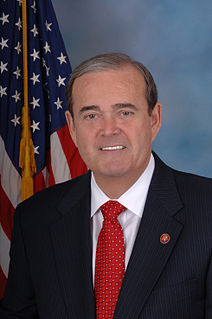A Quote by Bethany McLean
Privatization of assets that most of us consider public goods - like airports and highways - has a long, often-uncontroversial history.
Related Quotes
What we mean by an outcome will naturally depend on the context. Thus, for a government charged with delivering public goods, an outcome will consist of the quantities provided of such goods as intercity highways, national defense and security, environmental protection, and public education together with the arrangements by which they are financed.
Somebody's buying these treasury bills at 1/20th of one percent. I mean we consuming about $2 billion a day of goods and services beyond what we're producing.As long as we consume more than we produce, and we trade away little pieces of the country daily, they're going to own something. Now, they can't run from American assets. I mean every day the rest of the world is going to have about two billion more of American assets than we have, as long as they sell us these goods.
The reflection and experience of many years have led me to consider the holy writings not only as the most authentic and instructive in themselves, but as the clue to all other history. They tell us what man is, and they alone tell us why he is what he is: a contradictory creature that seeing and approving of what is good, pursues and performs what is evil. All of private and public life is there displayed. ... From the same pure fountain of wisdom we learn that vice destroys freedom; that arbitrary power is founded on public immorality.
That would be nice if [people] stuck [treasury bills] all under a mattress, but they got to buy something with them. Sometimes they buy a treasury note, sometimes they set up sovereign wealth funds. They can do all kinds of things. They can buy our companies here. As long as we consume more than we produce, and we trade away little pieces of the country daily, they're going to own something. Now, they can't run from American assets. I mean every day the rest of the world is going to have about two billion more of American assets than we have, as long as they sell us these goods.
Collective insurance policies and social protections have given way to the forces of economic deregulation, the transformation of the welfare state into punitive workfare programs, the privatization of public goods and an appeal to individual accountability as a substitute for social responsibility.



































